
All images courtesy of Getty Images

By Andrew Daly
[email protected]
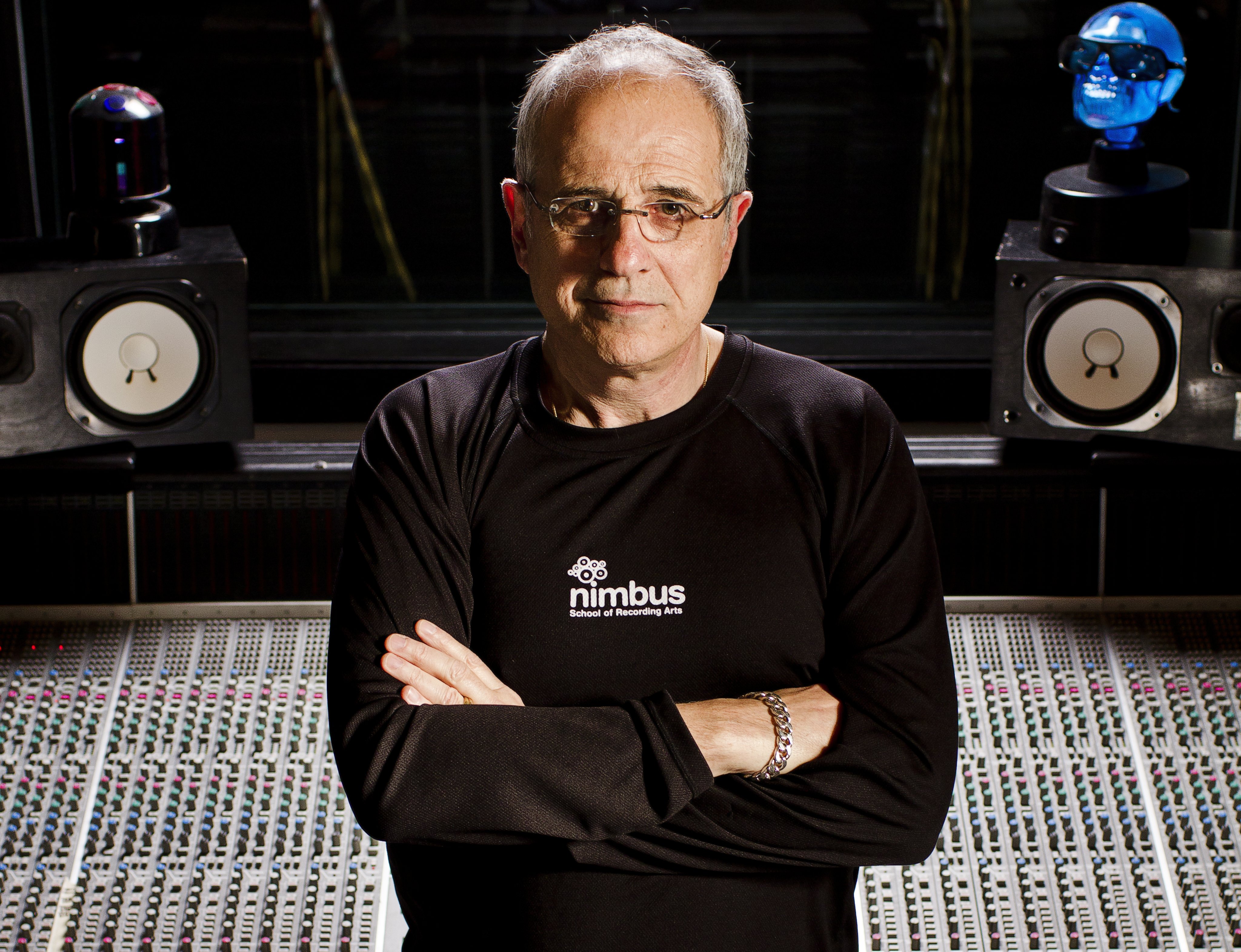
Think about your favorite albums. What are they? Who recorded them? Now that you’ve done that, take a second to think about how much you really know about those albums. Where were they recorded? What was the political, social, and popular climate like in that time period? All of these factors have a tremendous impact on a record and its sound. More so, these factors can come to define a record’s purpose, either by design or over time.
So, when it comes to your favorite records – who made them? Do you really know? Sure, the artists write the songs, and it’s them you hear coming across your speakers, but who is responsible for reigning it all in and putting the proverbial puzzle together? What if I told you there was a man who was responsible for bringing out the best in Alice Cooper, KISS, Pink Floyd, and most recently, Deep Purple?
While some of you may know his name, I suspect there are far too many of you that are completely unaware of the massive achievements of Bob Ezrin, as well as the indelible stamp that he has forever branded unto Rock ‘N’ Roll music. So, this week I wanted to discuss some of Ezrin’s finest moments and dig into his relationship with the artists. Some of these you may know, and others may be completely new to you. You’ve heard the albums, but now it’s time to lift the curtain and introduce you to the man who orchestrated them all. Let’s get started.
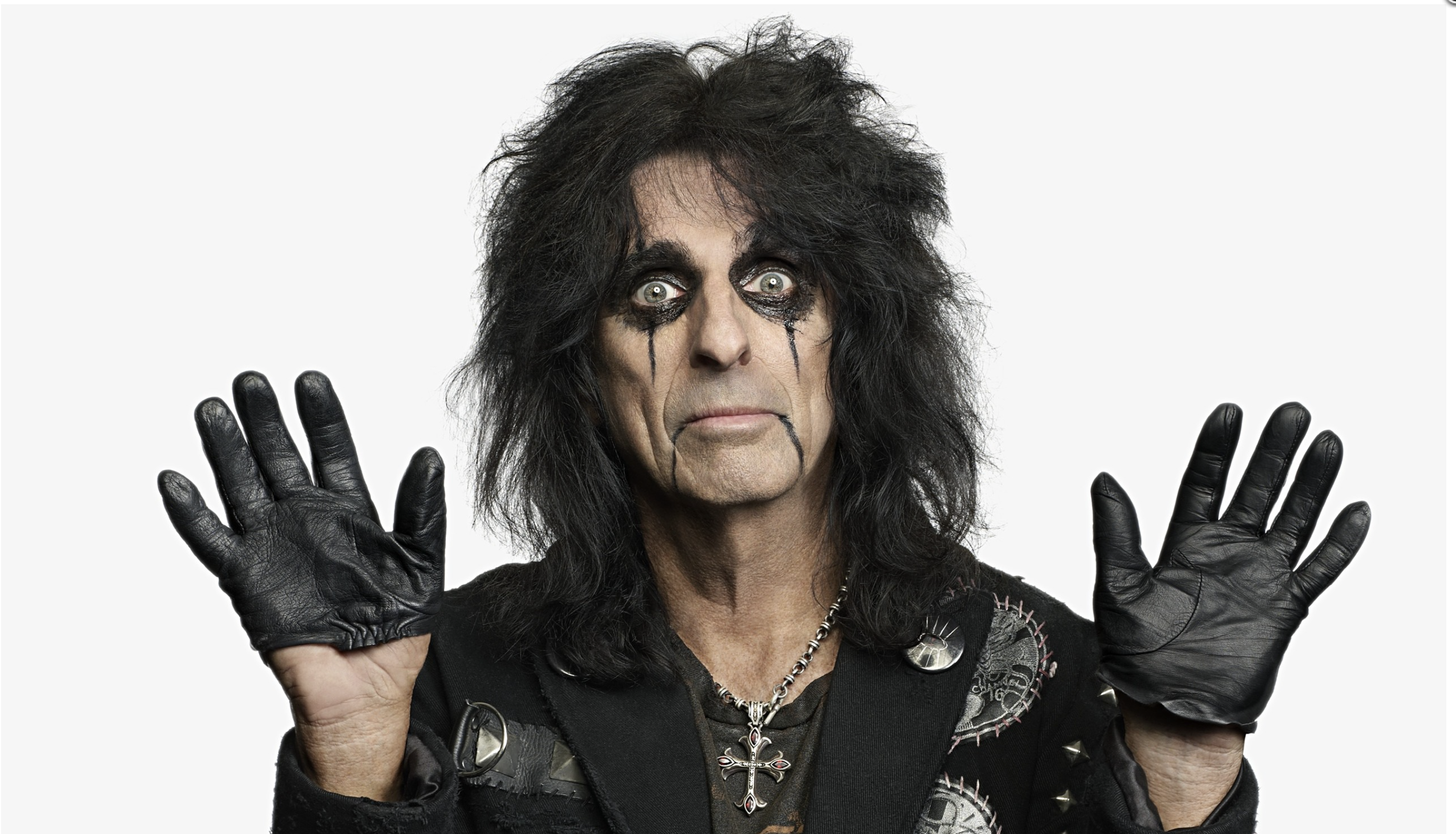
Alice Cooper (1971-1983, 2000-2001, 2011, 2017)
Before Alice Cooper became the makeup-wearing degenerate that parents would come to know and fear throughout the 1970s, he was something of a simpler rocker. His real name is Vincent Damon Furnier, and he was the lead singer of the Alice Cooper Band. The band itself did not achieve much success early on. It wasn’t until Furnier ditched his bandmates, and took the namesake for himself that things began to turn around. Once he officially became Alice Cooper, he hooked up with little-known producer, Bob Ezrin for Killer and the rest is history. While Killer may have been their first record together, it certainly would not be their last. It was the beginning of a beautiful working relationship and life-long friendship. Their finest effort may well be School’s Out, which was released in 1972. With Ezrin manning the controls, Alice Copper recorded music full of angst and fervor and rode it all the way to the top of the charts.
While it’s true that Alice Cooper’s over-the-top theatrics may have overshadowed his musical ability, with Ezrin on board, they went from a good rock band to a great hard rock band as they released Love It to Death, Killer, School’s Out, Billion Dollar Babies, Welcome to My Nightmare, Alice Cooper Goes to Hell, Lace and Whiskey, The Alice Cooper Show and finally DaDa to massive success throughout the 1970s, all with Bob Ezrin behind the boards. While drug and alcohol addictions would mostly derail Alice Cooper’s career for many years, his legacy always lived on. Nearly fifty years later, Alice Cooper still seems relevant, and his music is as fresh as ever, and that is in no small part to the efforts of the one and only Bob Ezrin. In 2000, the two hooked up again for the understated Brutal Planet, and again in 2001 for Dragontown, an album where flashes of the old Alice Cooper finally began to resurface. Finally, in 2011 Ezrin produced Welcome 2 My Nightmare (which is a sequel to his 1975 classic), and Alice Cooper garnered the long-awaited return to commercial and critical success, and in 2017, he produced Paranormal to continued fanfare. Seeing these albums released to wonderful reviews shows how deft Ezrin is at pushing aging artists to succeed and produce exemplary work late into their careers, and shows why both Alice Cooper and Bob Ezrin are as relevant today as ever.
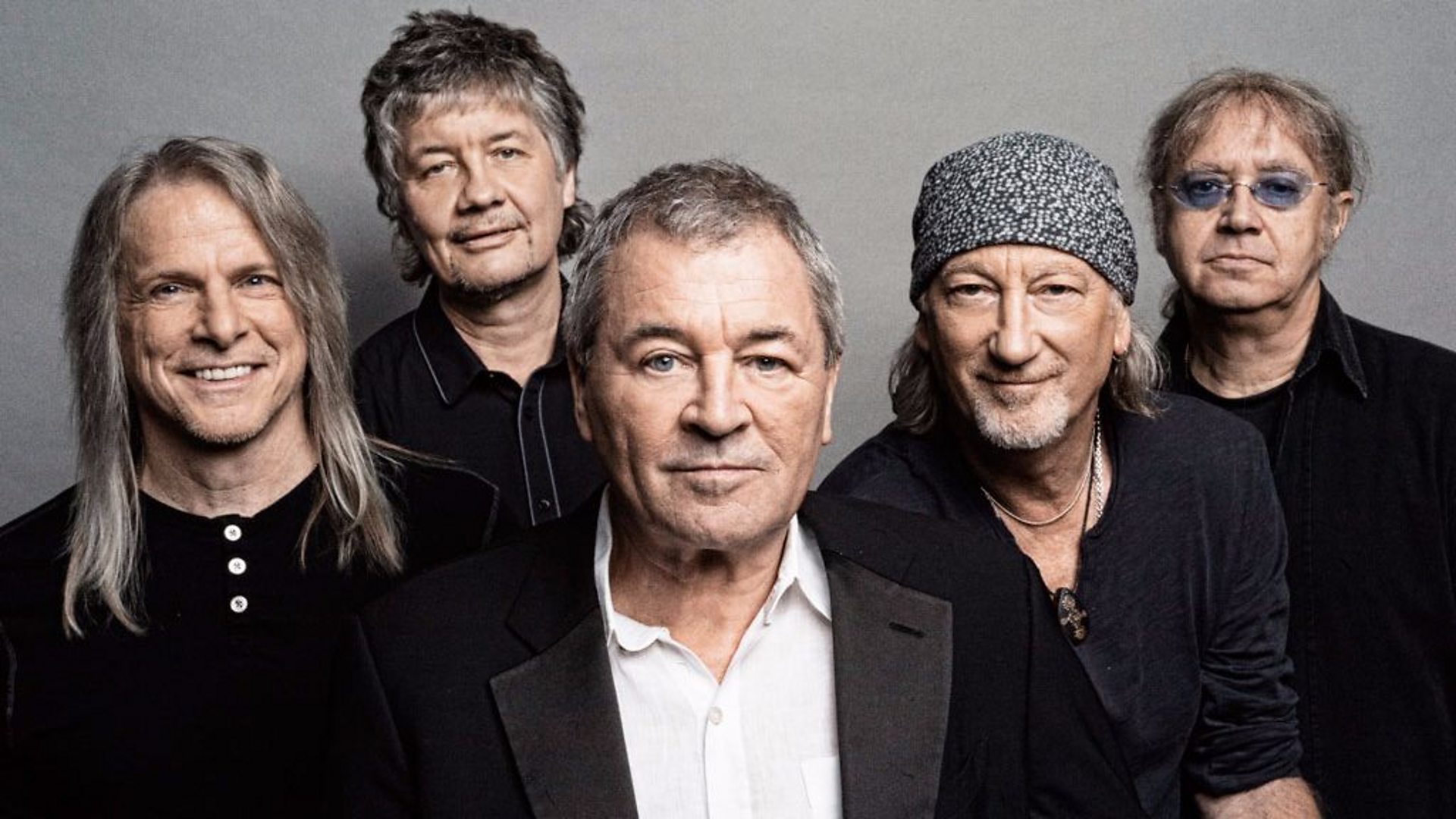
Deep Purple (2013-2020)
Bob Ezrin didn’t get his hands-on Deep Purple until what will probably amount to the final leg of their career, and not a moment too soon at that. In 2012, Deep Purple found itself a band reaching its end. Legendary Rock guitarist, and ace songwriter, Richie Blackmore was no longer with the band, and equally important and absolutely iconic organ/keyboardist Jon Lord had just died of pancreatic cancer after a long and hard battle. The band had reached a crossroads, and after 44 years as a band, no one would have held it against them if they chose to pack it in. Still, the band had a lot of fire left in them and wanted to give it one last shot, and so the album Now What?!, with veteran producer, Bob Ezrin, was born. Deep Purple is a band that has transitioned lineups many times over, and as a result, they are a band with a bit of an inconsistent catalog. That is not to say any of it’s bad because it isn’t. It’s more to say that some of them are significantly better than others.
Well, this version of Deep Purple is as close to the legendary Mark II lineup as we are going to get. With Ian Paice (drums), Roger Glover (bass), and Ian Gillan (vocals) being joined by capable newcomers Steve Morse (guitar) and Don Airey (keyboards), the band has for the first time in years reached a cohesive point and actually stumbled upon a later career renaissance. Their last three albums Now What?!, Infinite and Whoosh sound as fresh and energized as any Deep Purple albums have in the last 30 odd years. It’s no coincidence that Bob Ezrin has been at the helm of all three of these works. His ability to coax the best out of these aging rockers, and enable them to harken back and draw upon their musical past after so many years is remarkable. Deep Purple sounds more like themselves than ever, and it shows that with the right man at the controls, you don’t have to teach an old dog new tricks; you only have to remind him what he’s best at. To compare the Deep Purple of today to the Deep Purple of the 70s is a fool’s game. Still, what we see today, what Bob Ezrin has been able to draw out, is a band at the apotheosis of its character, making the absolute most of its abundant talent. Veterans of the Rock game, who are truly comfortable in their skin, and with each other, and nothing left to prove.
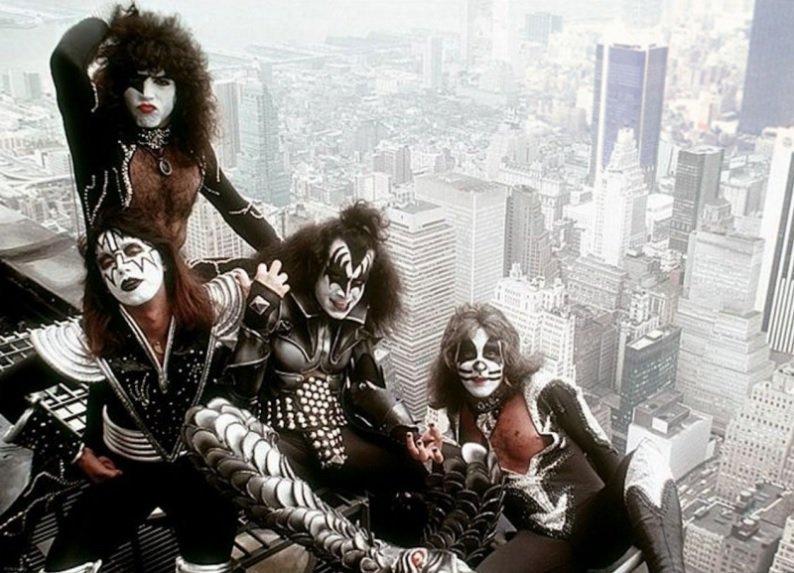
KISS (1976, 1981, 1992, 2012)
In 1976, KISS was a band flying high. They were just coming off the smash, overnight success of their live album, the aptly titled, Alive!, but they were still searching for a producer to help them finally harness their sound within the studio setting. While their first three albums had run the gamut, KISS being an eventual Glam Rock gem, Hotter Than Hell an unintentional Proto-Metal Psych freak-out, and Dressed to Kill is an early example of Power Pop-Rock, KISS still saw themselves as a Hard Rock band first and foremost, and wanted their studio efforts to reflect as much. At the same time, the members of KISS were tired of not being taken seriously by the music community and wanted to firmly establish themselves within legitimate Rock circles, and so the choice was made to hire Bob Ezrin to produce their next album, Destroyer. Ezrin ran into numerous roadblocks during the recording of the album. First, these were not highly trained musicians. These were four self-taught guys from NYC, none of whom could read music, all of whom were more concerned with partying and women than they were with anything else.
At one point, Ezrin literally had to halt all recording and provide lessons in basic music theory. The complete lack of discipline wore Ezrin’s patience thin, and he eventually resorted to wearing a whistle around his neck and exhorted the band with saying such as “Campers, we’re going to work!” During the outro to ‘Flaming Youth,’ Gene Simmons decided to stop playing early, and Ezrin yelled at him, saying “Don’t you ever stop a take unless I tell you!” The musical boot camp Ezrin put the band through would prove fruitful, however, as Destroyer turned out to be a massive critical and commercial success, and sold in excess of the first three KISS albums combined. Some thirty-five years later, Bob Ezrin and Paul Stanley would acquire the original 16-track analog master tapes, and both re-equalized and remixed each song. The result was Destroyer Resurrected, a crisper, clearer, and louder version of the album. Purists prefer the original version from 1976, and others love the 2012 remix. I happen to be in the latter camp, but with a classic such as this, you can’t go wrong, and it’s best to take them in as their own separate entities.
Five years after the success of Destroyer, in 1981, Ezrin reunited with KISS for Music from The Elder, which was to be a soundtrack to some kind of early 80’s fantasy movie that never came to be. For one reason or another, KISS decided to move forward with the album anyway, which left fans baffled and confused. The album is nothing like KISS ever recorded before it, or after it. Filled with symphony orchestras, choirs, flutes, and falsettos to the max, the album was hailed as one of the worst of all time, and to date is the only Kiss album to not to achieve Gold status (although it’s getting close). Retrospectively, however, Music from The Elder is seen as a cult classic. Something so bizarre, and out of context that it took fans nearly forty years to finally embrace and understand. Ezrin’s final entry into Kisstory was Revenge, which is easily one of the heaviest albums of the band’s career, and was released during a time when Grunge ruled the world, in 1992. In a time when KISS had just lost their drummer Eric Carr, and were once again searching for viability in an ever-changing musical landscape, Bob Ezrin did what he always does, steadied the ship, and ably guided it home toward calmer waters. As usual, the band was and is better for it. The result was KISS being able to achieve something of a semi-latter career masterpiece. Revenge is easy of their most cohesive albums, with consistent and fantastic performances throughout. Ezrin, the late-career master strikes again.
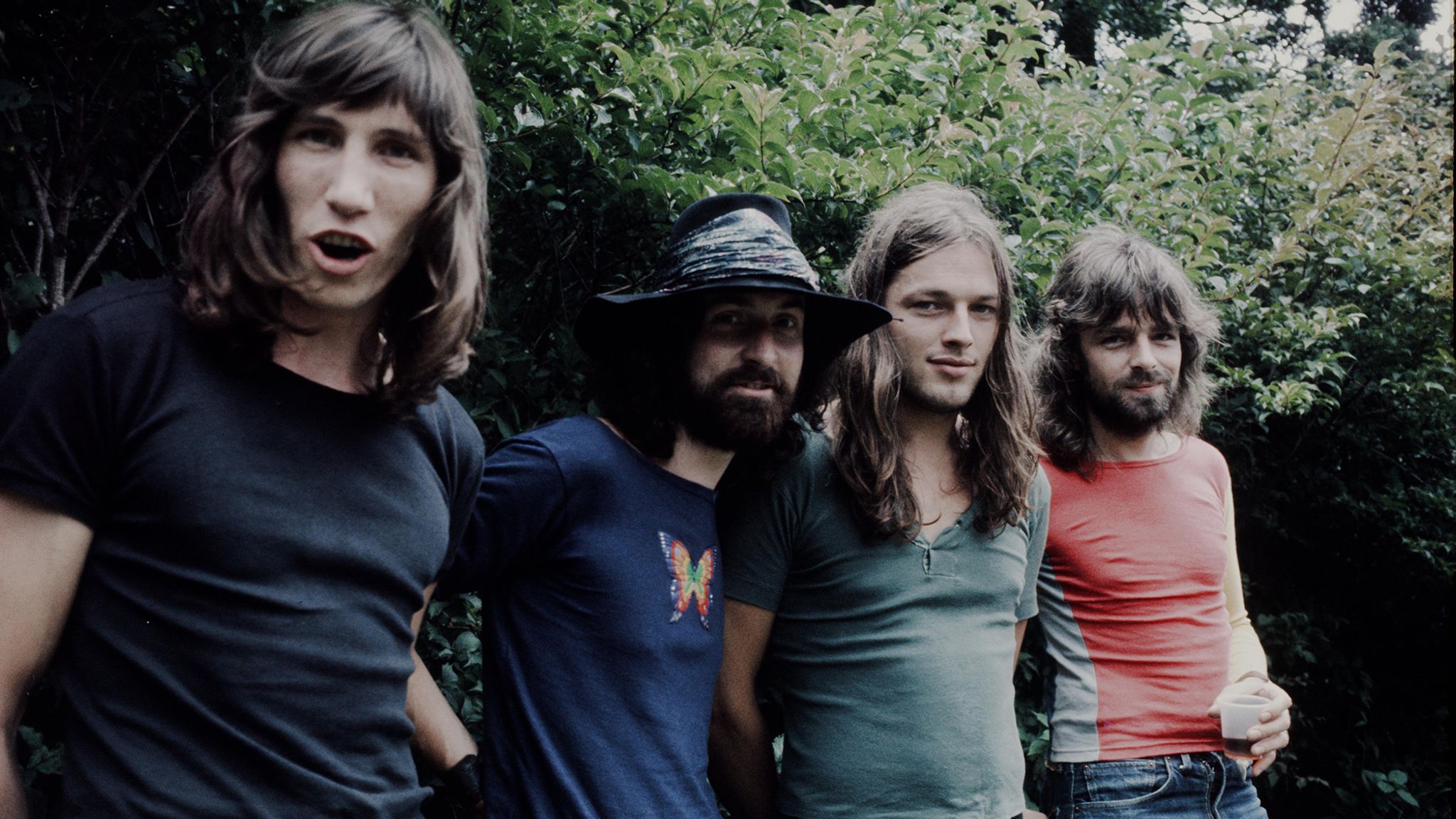
Pink Floyd (1979, 1987, 1994, 2014)
Over the course of Pink Floyd’s forty-nine-year career, they worked with Bob Ezrin exactly four times and the results were astounding. By the time Bob Ezrin began working with Pink Floyd, they were a band on the brink of destruction. The legendary tensions between Roger Waters and David Gilmour had already begun to boil over, and it was only a matter of time before they imploded. Ironically, what many perceive to be the band’s finest hour, was really the death rattles achingly lurching their way toward one final, explosive gasp. All of that aside, The Wall, released in 1979 was and is something of a cultural watershed moment. Ezrin caught the band at a time when they basically were refusing to work together, and so he had to coax lyrics and songs out of them, one at a time, day by day. Each night he would take the master tapes home with him in order to protect them from being confiscated by the band’s record company, Harvest Records. Ezrin looks back on it by saying, “I don’t know what the hell I was thinking. This was really not my place to do that. I’d just look at it go, ‘This is huge, this is monstrous, and what am I doing?’ But I would look at the pile of tape and go, ‘This is amazing work.’”
In truth, Pink Floyd was more than capable of producing their own magic in the studio, but the band had reached an impasse, with Roger Waters saying to Ezrin, “The reason I need you is, you’re going to deal with them. I can’t deal with them anymore.” The magic of what Ezrin was able to accomplish with The Wall is that he was able to somehow convince these men who hated each other to come together for one last time and create something truly magical. Seriously, when was the last time you sat down and listened to The Wall? I don’t mean hearing pieces of it on the radio. I mean truly sit, listen and give it your undivided attention. I used to think The Wall was overrated, but as I’ve gotten older, I truly see it for the masterstroke that it is. Without Bob Ezrin, this album simply doesn’t happen. The band most likely breaks up in 1979, and music history would be forever changed. Ezrin went on to produce the group’s final three albums, which were made after Roger Waters had left the band. A Momentary Lapse of Reason (1987), The Division Bell (1994), and their final album, The Endless River (2014) truly do amount to some of my favorite of Pink Floyd’s work. This trio of albums is extremely important in the Pink Floyd canon, as Roger Waters had famously proclaimed Pink Floyd to be a “spent force creatively.”
For once and for all, David Gilmour, Nick Mason, and Richard Wright, with the help of Bob Ezrin showed the world that they did not need Roger Waters to create lasting, and meaningful music. Bob Ezrin has produced dozens of albums in his career, but it is my opinion that his work with Pink Floyd is his absolute finest and well-earned. His work on The Wall is laced with blood, sweat, and tears, and is the culmination of sleepless nights and extreme mental anguish. If The Wall was his entire body of work, it would read as astounding; the fact that it’s only a piece of his ongoing puzzle is nearly unfathomable.
I could go on for days about Bob Ezrin. The list of artists he worked with is truly endless, with names such as Aerosmith, The Darkness, Deftones, Dr. John, Peter Gabriel, Jane’s Addiction, 30 Second To Mars, The Jayhawks, and Taylor Swift (to name a few), it’s easy to see the mark he has made on musical history, across so many genres. Simply put, popular music of the last fifty or so years has Bob Ezrin’s name stamped all over it.
Still, I think what’s most important isn’t the number of albums he’s made, or who has specifically worked with, or what techniques he’s used. No, his mastery is his ability to truly coax the most out of artists according to what their career requires at that time. Some producers only will record a certain way, and only cater to a certain sound, but not Bob Ezrin. Yes, all of his albums indeed have incredibly tight and crisp production, which demands proficiency from its players, but Bob Ezrin never forces a band to be something they’re not. Instead, he encourages if not demands bands to be exactly what they are, and the best possible version of it. If you’re a young band looking for legitimacy, then Bob Ezrin will take you there. If you’re an established band looking to make an intriguing statement for better or worse, then Bob Ezrin is your man, and if you’re a band on its last legs, or at the end of your career, and you still feel you have something to say, Bob Ezrin will keep you sounding fresh and ensure you aren’t repeating yourself.
Bob Ezrin is a take-charge man among boys, who allows bands to blossom and take control of their own careers as a result. At seventy-one years of age, Bob Ezrin is still working. He is still relevant. He is still as sought after as ever, and that’s comforting. Yes, I take solace in knowing that Bob Ezrin is helping usher in new music, just as he is helping the old guard pass onward and upward as well. So, keep your ears open, because Bob Ezrin isn’t done talking. No, I think he still has much to say.
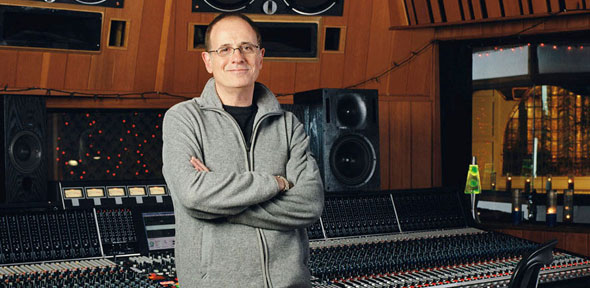
– Andrew Daly (@vwmusicrocks) is the Editor-in-Chief for www.vwmusicrocks.com and may be reached at [email protected]

A long and distinguished career.
Absolutely! Bob Ezrin is one of the best.